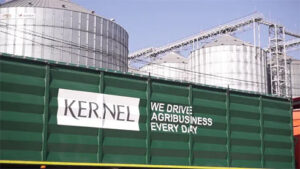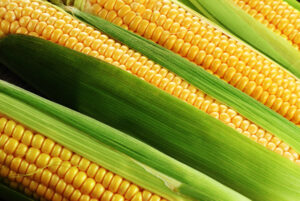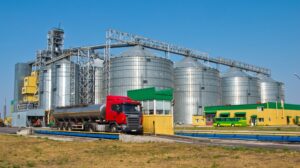
Kernel, one of Ukraine’s largest agro-industrial groups, a leading grain exporter from Ukraine, and a global leader in the production and export of sunflower oil, has received Ukraine’s first commodity agricultural note, the agro-holding’s press service reported on its website.
According to the report, the document was registered in the Register of Agricultural Notes with the support of PJSC National Depository of Ukraine (NDU), the official administrator of the system.
The commodity agricultural note was deposited with the Central Securities Depository, which ensures its legal status and high liquidity. Thanks to this, the instrument can be used as a reliable collateral in financial transactions and as an alternative to traditional agricultural financing mechanisms, the agricultural holding explained.
“We see the future in the digitization and standardization of processes. The use of agricultural notes is not just a tool, but a foundation for transparent and effective interaction between participants in the agricultural market. We are confident that this decision will allow us to flexibly and quickly support our partners, especially in today’s difficult market conditions,” emphasized Alexander Golovin, Commercial Director for Ukraine at Kernel.
The agricultural note was issued with the support of the IFC project “Developing Ukraine’s Agricultural Sector Access to Capital Markets,” which is being implemented in partnership with the Swiss Confederation. The initiative aims to expand access to finance for agricultural producers by strengthening the agricultural receipt instrument and preparing agricultural notes as a fully-fledged asset class for securitization.
“We sincerely believe that agricultural notes will become one of the key lending instruments for the agricultural sector, especially for covering working capital needs and attracting financing from capital markets,” said IFC Project Manager Kirill Mukhomedzyanov.
“An instrument such as a commodity agricultural note provides high legal transparency and reduces the cost of financing for agricultural producers, which is particularly valuable for small and medium-sized farmers with limited access to investment. Accordingly, in the long term, the use of notes will help boost investor and bank confidence in the sector and allow for free market circulation, opening up new sources of capital,” emphasized Kernel’s head of agribusiness finance, Mykhailo Golubakha.
The agricultural holding emphasized that the launch of agricultural notes is a manifestation of the company’s strategic course towards the digitalization of business processes.
Before the war, Kernel was the world’s leading producer of sunflower oil (about 7% of global production) and its exporter (about 12%). It is one of the largest producers and sellers of bottled oil in Ukraine. In addition, it is engaged in the cultivation and sale of agricultural products.

“Kernel, one of the largest Ukrainian agro-industrial groups, processed 845 thsd tonnes of oilseeds in the third quarter (January-March) of the financial year (FY) 2024/25, up 3% y-o-y, but down 9% q-o-q, according to the agroholding’s report.
According to the report, in January-March 2025, Kernel processed 694 thousand tons of sunflower seeds and, due to the lack of raw materials in the domestic market of Ukraine, also processed 151 thousand tons of soybeans at three plants. In addition, the agroholding processed 50 thou tons of sunflower seeds under tolling agreements with third parties.
As a result of processing of both sunflower seeds and soybeans in the third quarter of 2024/25, the agricultural holding’s edible oil sales fell by 9% year-on-year to 347 thsd tonnes. At the same time, sales of edible oil in the first nine months of FY2025 amounted to 1 mln tons, which is 6% less than in the same period last year.
The report also notes that grain supplies to the agricultural holding’s elevators decreased by 2% to 2.7 million tons in the first nine months of FY2025.
“In the third quarter of FY 2024/25, Kernel reduced grain exports by 15% to 1.6 mln tonnes compared to the same period last year, which it explained by the decline in the harvest in Ukraine. In total, Kernel exported 4.4 mln tons of grains and oilseeds in the first nine months of the year, accounting for 12% of the national exports.
Transshipment through the agricultural holding’s export terminals reached 2.5 million tons in the third quarter, up 2% year-on-year. This volume included 1.8 mln tons of grains, 0.3 mln tons of edible oil, and the rest was made up of oilseeds.
In total, for the first nine months, the transshipment volume amounted to 7.3 mln tons, up 65% year-on-year, due to the low comparison base in FY 2024/25 due to the closure of the Black Sea ports at the beginning of the season, the agricultural holding summarized.
Kernel is the world’s largest exporter of sunflower oil, one of the largest producers and sellers of bottled oil in Ukraine. In addition, it is engaged in the cultivation and sale of agricultural products.
In the first nine months of 2024, the agricultural holding reduced its net profit by 53% to $204 million, while its revenue decreased by 4% to $2.595 billion, and its EBITDA decreased by 36% to $384 million.

“Kernel, one of Ukraine’s largest agricultural holdings, intends to strategically adjust its crop mix for the 2025 harvest during the spring sowing campaign to align with its more sustainable practices that were maintained before the full-scale war in Ukraine.
According to the quarterly report published on the company’s website on Friday, Kernel plans to allocate about 168 thousand hectares for corn, which is twice as much as in the 2024 season and will account for 49% of its total production area.
At the same time, the agroholding plans to reduce sunflower acreage by 34%, to 44 thou hectares (or 13% of the crop structure). The agricultural holding explained this decision by further optimizing land use and restoring long-term agronomic sustainability.
“In 2025, Kernel will also reduce its soybean acreage to 27 thou hectares, while a year earlier it had 72 thou hectares under soybeans.
“As of the date of the report, winter crops – including 95 thou hectares of winter wheat and 3.45 thou hectares of rapeseed – are in generally good condition, with no significant risks beyond the usual seasonal factors at this stage,” the agricultural holding summarized.
Kernel is the world’s largest exporter of sunflower oil, one of the largest producers and sellers of bottled oil in Ukraine. In addition, it is engaged in the cultivation and sale of agricultural products.
In FY2024, Kernel’s net profit decreased by 44% compared to FY2023 to $167.95 million, while revenue increased by 4% to $3.581 billion and EBITDA decreased by 30% to $381 million.

“Kernel, one of Ukraine’s largest agricultural holdings, posted a net profit of $56 million in the second quarter of fiscal year (FY) 2025 (July-September 2024), compared to $133 million in the same period of FY 2024.
According to the quarterly report published on the company’s website on Friday, Kernel’s consolidated revenue in the second quarter of FY2025 reached $1149 million, up 10% year-on-year amid a low comparative base due to the lack of stable grain export operations in July-September 2023.
“This growth was primarily driven by an increase in edible oil sales, which was driven by both higher export volumes and higher global prices,” the company said.
At the same time, the Group recognized a net loss from changes in the fair value of biological assets in the amount of $33 million compared to a loss of $12 million recognized in Q1 FY2024, the report also specifies.
It is also noted that the Group’s cost of goods sold increased by 18% to $960 million, mainly due to a 45% increase in the cost of goods sold and raw materials used, reflecting increased competition for raw materials and limited supplies. On the other hand, transportation and procurement costs decreased by 52% year-on-year, accounting for only 10% of total cost of sales, due to lower freight rates supported by stable export operations from the Black Sea region.
As a result of the sharp increase in cost of sales, which outpaced revenue growth, gross profit in the second quarter of FY2025 decreased by 28% year-on-year and by 5% quarter-on-quarter to $157 million.
Other operating income for the three months ended December 31, 2024 amounted to $10 million, down 55% year-on-year, mainly reflecting gains from the settlement of contract price differences, inventory inventory, and fines and claims accrued on oil and grain trading operations.
It is noted that general and administrative expenses in the second quarter of FY2025 increased sharply by 42% year-on-year, reaching $75 million. This surge was mainly due to an increase in salaries and related expenses, as well as an increase in legal and professional services.
As a result, Kernel’s EBITDA in the second quarter of FY2025 amounted to $118 million, down 42% quarter-on-quarter and 30% quarter-on-quarter in FY2024.
Overall, in the first half of FY2025, the company’s net profit increased by 73% to $77 million, EBITDA by 29% to $287 million, and revenue by 22% to $1 billion 947 million.
Kernel is the world’s largest exporter of sunflower oil and one of the largest producers and sellers of bottled oil in Ukraine. It is also engaged in the cultivation and sale of agricultural products.
In FY2024, Kernel’s net profit decreased by 44% compared to FY2023 to $167.95 million, while revenue increased by 4% to $3.581 billion and EBITDA decreased by 30% to $381 million.

“Kernel, one of Ukraine’s largest agricultural holdings, posted a net profit of $121 million in the first quarter of fiscal year (FY) 2025 (July-September 2024), compared to a net loss of $31 million in the same period of FY 2024.
“This indicates a strong dependence of the group’s revenues on the availability of the Black Sea for export operations,” the company said in a quarterly report published on its website on Friday.
According to the report, Kernel’s consolidated revenue in Q1 FY2025 reached $798 million, up 46% year-on-year, amid a low comparative base due to the lack of stable grain export operations in July-September 2023.
At the same time, it is specified that compared to the previous quarter, in July-September 2024, revenue decreased by 19% due to a seasonal decline in sales of edible oils and grain.
“Due to the increase in global prices for grains and oilseeds, the Group recognized a net gain on changes in the fair value of biological assets of $42 million compared to a loss of $10 million recognized in Q1 FY2024,” the report also says.
It is also noted that Kernel’s cost of sales decreased by 18% quarter-on-quarter to $675 million, in particular, shipping and handling costs fell by 38% due to lower sales volumes and lower freight costs and accounted for 15% of the total cost of sales.
“As a result, gross profit for July-September 2024 decreased by 20% year-on-year to $164 million, which is 3.2 times higher than the previous year’s result of $52 million,” the document says.
According to the report, Kernel’s EBITDA in the first quarter of 2025 amounted to $169 million compared to $19 million in the first quarter of 2024.
It is specified that the oilseeds processing segment provided EBITDA of $37 million, which is 37% less than in the previous year, and this decrease was due to both a decrease in edible oil sales and a decrease in profitability.
In the Infrastructure and Trading segment, EBITDA amounted to $53 million, up 9 times year-on-year, mainly due to the inaccessibility of the Black Sea for export operations from Ukraine in the same period last year. This year’s strong performance was driven by profitable grain harvesting and transshipment operations in Ukraine and the availability of deepwater ports, which ensured stable export operations.
The Agriculture segment reported a strong EBITDA of $84 million, a sharp turnaround from a loss of $23 million in 1Q2024, thanks to $42 million from the revaluation of biological assets, supported by the sale of 521 thousand tons of grains and oilseeds in July-September 2024.
“Operating profit before changes in working capital in July-September 2024 increased 2.8 times compared to the same period last year and reached $148 million, reflecting an improvement in the EBITDA structure due to the opening of deepwater ports for export operations,” the document states.
At the same time, changes in working capital resulted in a cash outflow of $56 million in the reporting period, which was mainly due to the seasonal accumulation of inventories amid the ongoing harvesting campaign in Ukraine.
Net cash used in investing activities amounted to USD 20 million, reflecting the purchase of property, plant, and equipment. Following the completion of major investment projects in the previous financial year, the Group shifted its focus to modernizing agricultural machinery and other maintenance activities.
According to the report, net cash provided by financing activities for the three months ended September 30, 2024 amounted to $20 million, including $114 million in proceeds from new borrowings, $83 million in repayments of borrowings, and $11 million in repayments of agricultural land lease obligations.
Kernel’s debt obligations increased by 4% in the first quarter of FY2025 to $1.129 billion, reflecting the use of previously signed credit lines from European and Ukrainian banks to finance working capital, but the company repaid $300 million of Eurobonds in October, and its net debt decreased by 7% to $261 million at the end of September.
“In the first quarter of FY2025, the group’s leverage improved, with net debt to EBITDA falling to 0.5x and interest coverage ratio rising to 10.7x EBITDA before 12-month interest,” the document states.
It is also specified that inventories increased by 76% in the first quarter of FY2025 to $435 million, reflecting the seasonal accumulation of sunflower seeds and grain due to the long harvesting campaign in Ukraine. Inventories included 988 thousand tons of grains (mainly corn, wheat and soybeans), 94 thousand tons of edible oil, 49 thousand tons of sunflower meal and 340 thousand tons of sunflower seeds.
In addition, in October 2024, the company raised a $150 million pre-export credit line from a syndicate of international banks to support export operations and meet working capital needs in the current fiscal year.
Kernel is the world’s largest exporter of sunflower oil and one of the largest producers and sellers of bottled oil in Ukraine. It is also engaged in the cultivation and sale of agricultural products.
Kernel’s net profit for FY2023 amounted to $299 million, while the company ended the previous year with a net loss of $41 million. The agricultural holding’s revenue for FY2023 decreased by 35% to $3.455 billion, but EBITDA increased 2.5 times to $544 million.

Kernel Holding S.A. (Luxembourg), the holding company of one of the largest Ukrainian agricultural holdings, has refused to pay dividends for the 2024 fiscal year (FY, July 2023-June 2024) and will direct the received unconsolidated profit of $53.05 mln to reserves. As stated in the company’s announcement on the Warsaw Stock Exchange, such a decision was made by the shareholders’ meeting on December 10, at which the owner of 94.37% of the company’s shares Namsen Limited of the head of the board of directors and majority shareholder Andrew Werewski had 99.63% of the votes.
It is specified that 276 million 915.05 thousand votes were cast in favor of the decision, while against – 1 million 025.92 thousand. The meeting also approved the consolidated financial report of Kernel with a net profit of $167.95 million, which is 44% worse than 2023FY. The shareholders also confirmed PwC Société cooperative as independent auditor for the new fiscal year.
As reported, the agroholding’s revenue for the past FY grew by 4% to $3.581 bln, while EBITDA declined by 30% to $381 mln.
Kernel Agroholding is the world’s largest exporter of sunflower oil and one of the largest producers and sellers of bottled oil in Ukraine. In addition, it is engaged in the cultivation of agricultural products and their realization. Kernel’s net profit for 2023FY amounted to $299 mln, while the previous year the company finished with a net loss of $41 mln. The company’s revenue for 2023FY decreased by 35% to $3.455 bln, but EBITDA increased 2.5 times to $544 mln. Currently, Kernel’s shares are listed on the Warsaw Stock Exchange at the rate of 12.82 PLN (about $3.15) per unit.